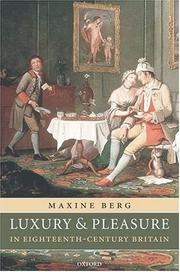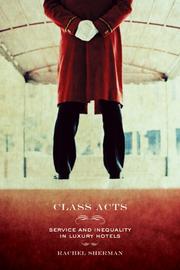| Listing 1 - 5 of 5 |
Sort by
|

ISBN: 0712347224 0712363947 Year: 2001 Volume: *7 Publisher: London : The British Library,
Abstract | Keywords | Export | Availability | Bookmark
 Loading...
Loading...Choose an application
- Reference Manager
- EndNote
- RefWorks (Direct export to RefWorks)
Book history --- Great Britain --- Beaux livres --- Bibliofiele uitgaven --- Bibliography -- Fine editions --- Editions [Fine ] --- Fine books --- Fine editions --- Fine printing --- Livres -- Éditions de luxe --- Presses [Private ] --- Presses privées --- Printing -- Specimens -- Fine books --- Private press books --- Privé-persen --- Éditions bibliophiliques --- Éditions de luxe --- 096 --- 655.41 --- Private presses --- Uitgeverij--algemeen --- 096 Private presses --- Private press books. --- Fine books.

ISBN: 0754606112 1351891774 1315240343 1351891766 9781351891776 9780754606116 Year: 2016 Publisher: Abingdon, Oxon : Routledge,
Abstract | Keywords | Export | Availability | Bookmark
 Loading...
Loading...Choose an application
- Reference Manager
- EndNote
- RefWorks (Direct export to RefWorks)
095 <4>
---
094.2 <417 DUBLIN>
---
Merkwaardige boekbanden--Europa
---
Oude drukken: bibliotheekcatalogi--

ISBN: 9780199215287 9780199272082 0199215286 0199272085 1281346063 019153403X 0191695939 1435606949 Year: 2005 Publisher: Oxford : Oxford university press,
Abstract | Keywords | Export | Availability | Bookmark
 Loading...
Loading...Choose an application
- Reference Manager
- EndNote
- RefWorks (Direct export to RefWorks)
The fine mahogany secretaire with its secret drawers, the lacquered tea table, Chinese and Japanese porcelain tea ware. These fine luxury goods now seem to belong to the English country house or the exclusive antique shop. But what do they tell us about their eighteenth-century consumers? Who owned these goods, what made them desirable, where did they come from, and how were they made? And how many people actually enjoyed their novelty and fashion? In Luxury and Pleasure in. Eighteenth-Century Britain Maxine Berg explores not only how luxury consumer goods transformed the homes of Britain's ur
Consumption (Economics) --- Consumer goods --- Luxury goods industry --- Middle class --- Consommation (Economie politique) --- Biens de consommation --- Produits de luxe --- Classes moyennes --- History --- Economic aspects --- Histoire --- Aspect économique --- Industrie --- Great Britain --- Grande-Bretagne --- Social conditions --- Conditions sociales --- Affluent consumers --- Bourgeoisie --- Commons (Social order) --- Middle classes --- Social classes --- Industries --- Consumer demand --- Consumer spending --- Consumerism --- Spending, Consumer --- Demand (Economic theory) --- Consumer products --- Consumers' goods --- Goods, Consumer --- Commercial products --- Affluent market --- Rich as consumers --- Rich consumers --- Wealthy consumers --- Consumers --- 18th century --- Affluent consumers. --- Consumer goods. --- Consumption (Economics). --- Luxury goods industry. --- Middle class. --- History of civilization --- History of the United Kingdom and Ireland --- luxury

ISBN: 0520939603 1281752509 9786611752507 1433700026 0520247825 0520247817 9780520939608 9780520247826 9781433700026 9780520247819 9781281752505 Year: 2006 Publisher: Berkeley : University of California Press,
Abstract | Keywords | Export | Availability | Bookmark
 Loading...
Loading...Choose an application
- Reference Manager
- EndNote
- RefWorks (Direct export to RefWorks)
In this lively study, Rachel Sherman goes behind the scenes in two urban luxury hotels to give a nuanced picture of the workers who care for and cater to wealthy guests by providing seemingly unlimited personal attention. Drawing on in-depth interviews and extended ethnographic research in a range of hotel jobs, including concierge, bell person, and housekeeper, Sherman gives an insightful analysis of what exactly luxury service consists of, how managers organize its production, and how workers and guests negotiate the inequality between them. She finds that workers employ a variety of practices to assert a powerful sense of self, including playing games, comparing themselves to other workers and guests, and forming meaningful and reciprocal relations with guests. Through their contact with hotel staff, guests learn how to behave in the luxury environment and come to see themselves as deserving of luxury consumption. These practices, Sherman argues, help make class inequality seem normal, something to be taken for granted. Throughout, Class Acts sheds new light on the complex relationship between class and service work, an increasingly relevant topic in light of the growing economic inequality in the United States that underlies luxury consumption.
Hospitality industry --- Hotels --- Luxuries --- Social classes --- Luxury goods --- Luxury services --- Commercial products --- Hotels, taverns, etc. --- Inns --- Boardinghouses --- Taverns (Inns) --- Service industries --- Customer services --- Management. --- Social aspects --- Hotel management --- Accueil (Tourisme) --- Hôtels --- Produits de luxe --- Classes sociales --- Service à la clientèle --- Gestion --- Aspect social --- america. --- behind the scenes. --- bellperson. --- class differences. --- concierge. --- consumer society. --- cultural studies. --- demographic study. --- economic inequality. --- ethnographers. --- ethnographic research. --- hotel jobs. --- hotel managers. --- hotel staff. --- hotel workers. --- housekeepers. --- luxury consumption. --- luxury hotels. --- luxury service. --- nonfiction study. --- nonfiction. --- service industry. --- social inequality. --- social relationships. --- united states. --- urban hotels. --- wealthy guests. --- workplace.
Book
ISBN: 0191667412 9780191667411 1299538541 9781299538542 9780191757594 0191757594 0199678308 9780199678303 Year: 2013 Publisher: Oxford : Oxford University Press,
Abstract | Keywords | Export | Availability | Bookmark
 Loading...
Loading...Choose an application
- Reference Manager
- EndNote
- RefWorks (Direct export to RefWorks)
An examination of key issues connected with the distribution of personal wealth in the UK. It discussess why wealth is now such an important factor in social differences and public policy and presents the most recent information on current wealth inequalities and a detailed discussion of trends in the distribution of wealth.
Income distribution --- Wealth --- Affluence --- Distribution of wealth --- Fortunes --- Riches --- Business --- Economics --- Finance --- Capital --- Money --- Property --- Well-being --- Government policy --- E-books --- Riquesa --- Gran Bretanya --- Béns --- Distribució de la riquesa --- Fortuna --- Economia --- Beneficis --- Capitalistes --- Classe acomodada --- Consum (Economia) --- Distribució (Teoria econòmica) --- Luxe --- Plusvàlua --- Britain --- Britània (Província romana) --- Britannia --- Regne Unit --- Regne Unit de la Gran Bretanya i Irlanda del Nord --- United Kingdom of Great Britain and Northern Ireland --- Europa occidental --- Països de la Unió Europea --- Anglaterra --- Bermudes --- Escòcia --- Gal·les --- Gibraltar --- Illes Verges Britàniques --- Irlanda del Nord --- Man (Gran Bretanya : Illa) --- Malvines (Arxipèlag) --- Illes Britàniques
| Listing 1 - 5 of 5 |
Sort by
|

 Search
Search Feedback
Feedback About UniCat
About UniCat  Help
Help News
News